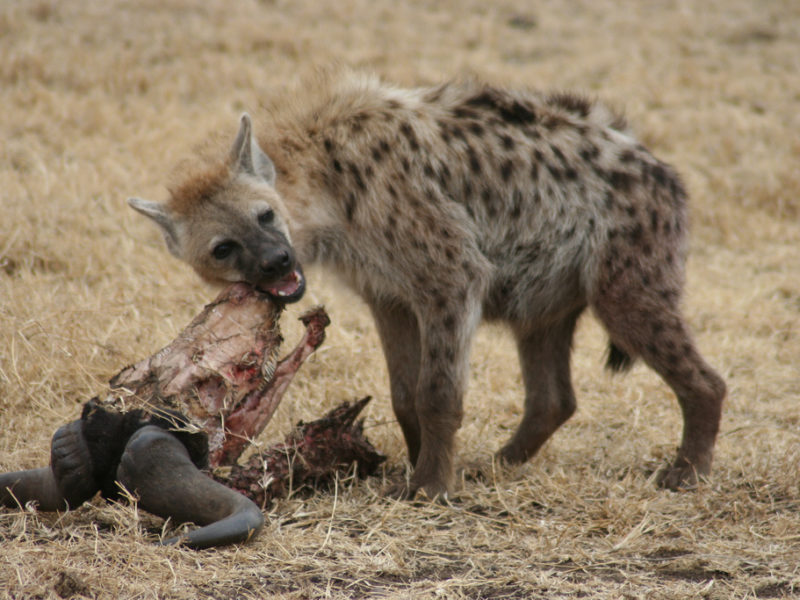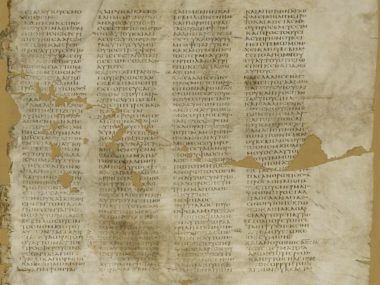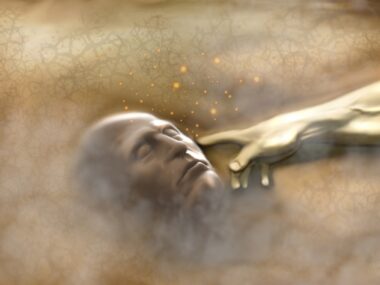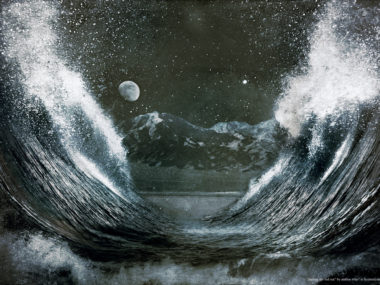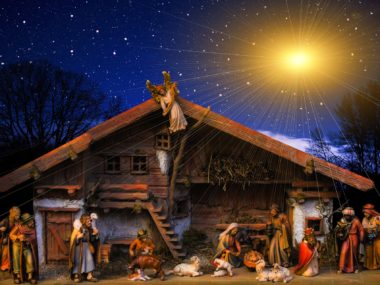To begin with, let’s explore Romans 8:20-22 (ESV), where Paul says, “For the creation was subjected to futility, not willingly, but because of him who subjected it, in hope, that the creation itself will be set free from its bondage to corruption and obtain the freedom of the glory of the children of God. For we know that the whole creation has been groaning together in the pains of childbirth until now.”
The following article has been reblogged with permission from Creation Unfolding. The views expressed reflect those of the author, and not necessarily those of New Creation.

First of all, notice that the creation was subjected to futility. This raises two questions, 1. When did this subjection occur? And 2. Who is doing it? This is important because some old earth advocates believe that the one doing the subjection is Satan, and that it occurred after Satan’s fall, at some stage before the fall of Adam and Eve. Yet New Testament scholars C.E.B Cranfield, Dougles Moo, William Hendriksen, unanimously agree with most other Greek scholars that this subjection refers to the judgment of God on Adam and the creation as it is described in Genesis 3:17-19. As an example, C.E.B Cranfield says, “There is little doubt that Paul has in mind the judgment related in Gen 3:17-19, which includes the words ‘cursed is the ground for thy sake.’” Douglass Moo says this: “’Adam…did not subject it.’ Nor did Satan, whatever his role in the Fall, “subject” creation. Paul must be referring to God who alone had the right and the power to condemn all of creation to frustration because of human sin.”
Many old earth advocates believe that God, and not Satan, is in fact the one doing the subjection, but they reject its association with the fall of Adam and Eve in Genesis 3. They contend that God must have subjected the creation to futility at the beginning of creation, billions of years before the creation of Adam and Eve. This is because old earth advocates believe that almost all of the fossil record, which is really a record of intense suffering and death, predates Adam and Eve by billions of years. But this interpretation cannot be supported by the context of Romans 8:18-22. Notice that Paul says that the creation was subjected to “futility.” This word conveys the idea of “aimlessness,” “vanity,” or “to lack purpose.” Greek NT scholar C.E.B Cranfield says this:
“But the simplest and most straightforward interpretation would seem to be to take [futility] here in the word’s basic sense as denoting the ineffectiveness of that which does not attain its goal…and to understand Paul’s meaning to be that the sub-human creation has been subjected to the frustration of not being able to properly fulfil the purpose of its existence.”
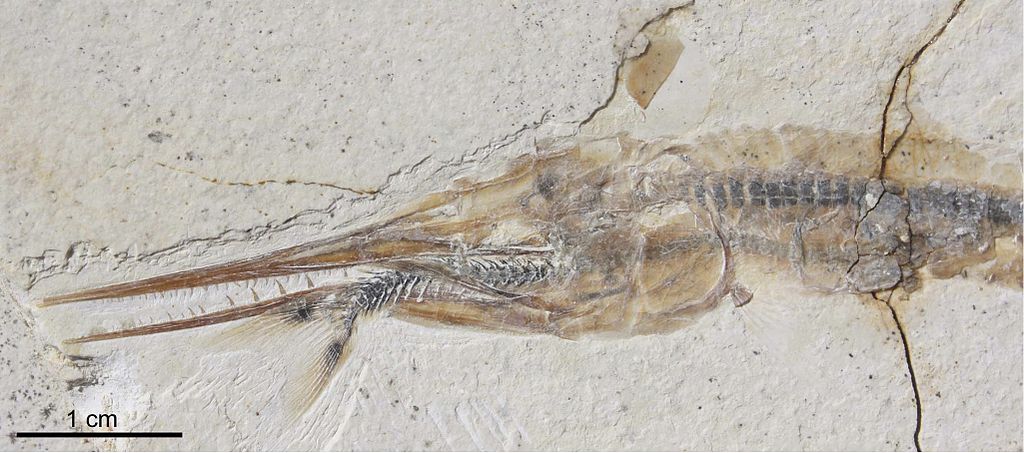
Paul is saying that the present creation is aimlessly at work pushing itself towards a meaningless goal; and that it is not functioning according to the purpose for which it was originally made. And if that is the case, and it is, then how can old earth advocates square this up with God’s words in Genesis 1:31, “God saw all that he had made, and it was very good. And there was evening, and there was morning—the sixth day.” God calls His creation “very good” precisely because at the end of the sixth creative day, it is functioning properly and is on a meaningful trajectory. Futility is absent.
Yet “futility” is not the only word Paul uses to describe the present created order. He goes on to say that “creation itself will be set free from its “bondage to corruption,” that it will obtain “freedom,” and that it has been “groaning together in the pains of childbirth.”
These are powerful words and can in no way, shape, or form be squared Genesis 1:31’s “very good.”
Some old age advocates attempt to interpret the words “very good” by appealing to the benefits of suffering and death. Hugh Ross, for example, says, “It is this selectivity [the killing of the injured, aged, and infant animals] that helps to enhance the health, robustness, and population of prey species.” He also says this, “This abundant and delicate balance of diverse species has killed many animals and thus enriched Earth’s crust with quadrillions of tons of valuable biodeposits—limestone, marble, coal, oil, natural gas, gypsum, etc.”
One’s interpretation, however, of what “very good” means cannot be derived from one’s experience with nature. It must come from the Bible first, and then, and only then, can we use nature as an analogy. Using the Scriptures as our ultimate authority, we find that Paul categorically uses the words, “futility,” “bondage,” “corruption,” “groaning,” “pains,” and “freedom” in antithesis to the words “very good” found in Genesis. This means that “very good” must be the opposite of: “futility,” “bondage,” “corruption,” “groaning,” “pains,” and “freedom.” Once we concede to the scriptures on this point, we must conclude with Paul that the natural world has been completely, radically, and utterly changed.
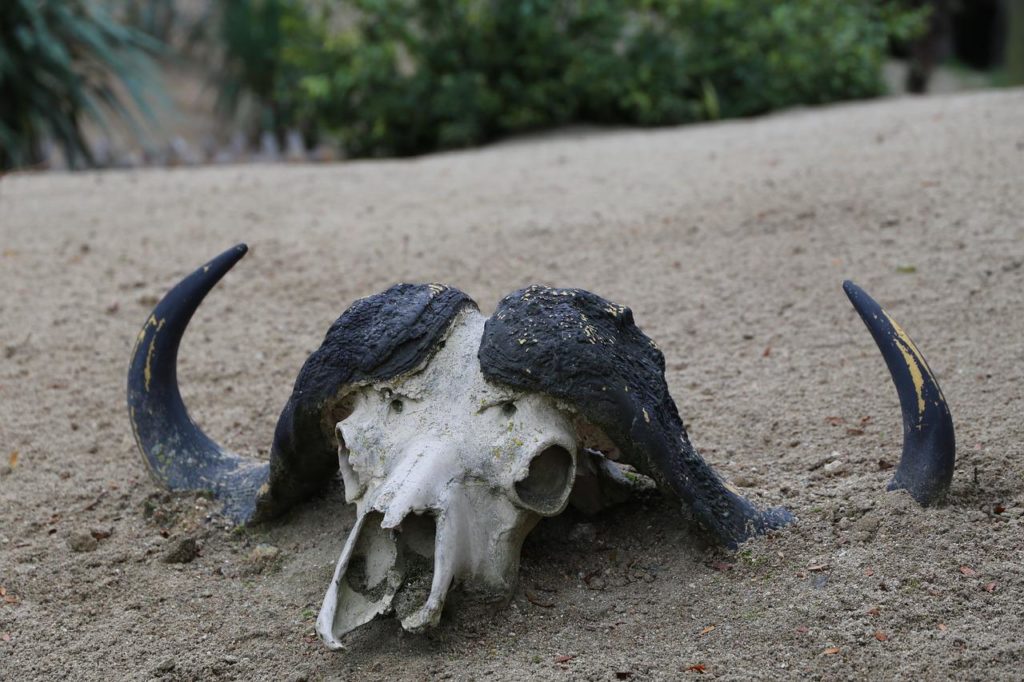
The pain and suffering that we see in nature thus becomes a powerful picture of just how broken, and without Christ, how utterly absurd the world really is. This broken creation is thus meant to push us to have an eternal perspective. This is why Paul says these comforting words in verses 18 and 19 (ESV), “For I consider that the sufferings of this present time are not worth comparing with the glory that is to be revealed to us. For the creation waits with eager longing for the revealing of the sons of God.” An old-earth perspective robs these verses of their intended meaning.
Look, I get it. As a scientist, I still have many unanswered scientific questions. But let’s not push clear passages of scripture such as this aside, just because we think that modern science has all the answers.
Learn More About the Effects of the Fall
Footnotes:
C.E.B Cranfield, The Epistle to the Romans 1-8 (Vol. 1), International Critical Commentary Series, page 413.
Douglass Moo, The Epistle to the Romans, New International Commentary on the New Testament, page 516.
Hugh Ross, 2020. Why did God make animals to be so violent, https://reasons.org/explore/publications/pub_channel/why-did-god-make-animals-to-be-so-violent

